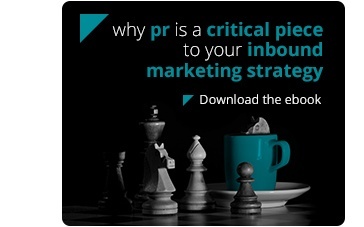CMO Pitfall: 5 Digital Transformation Barriers

Digital transformation, in general, is a game changer. In fact, maybe it’s time we just say transformation and drop digital. I mean, are we not at a time that digital is part of every brand’s DNA? Marketers have relied on telling audiences’ stories through big media channels, leading to labels such as “untrustworthy” or “money-hungry.” But today, marketers tell a brand’s story in an authentic and emotional way. They educate buyers to make informed purchase decisions through multi-channel strategies levering all forms of content.
While (digital) transformation is a win for marketers, it lacked the same positive effect on other C-suites, wreaking havoc on cost and security, to name a few. With such a positive outlook on the potential of digital transformation for all brands, it only makes sense for CMOs to lead the way, but marketers certainly have their work cut out for them.
Below are a few cautionary roadblocks:
1) Don’t get trapped in a siloed digital world.
Companies will often hire several agencies or teams trying to tackle the same goal: Qualified leads that can turn into revenue. Social media, content marketing, PR, digital and analytics are all supporting the same brand goals. If these efforts are not cohesively working together, you end up with untargeted messaging that can ruin a customer relationship or hurt any budding relationships with a prospect. Align these channels and bring them together to create a more integrated and thoughtful approach.
For more information on creating a more cohesive marketing and PR team, download ‘Why PR is a Critical Piece to Your Inbound Marketing Strategy’.
2) Focusing on the customer experience.
CX is quickly becoming the most important aspect of marketing. Technology is changing the way we communicate with our customers. Think of companies that are extremely successful, for example Facebook, Netflix, Amazon or AirBnB. They excel at retaining and growing their customer base by learning the interests of their target audiences, and by making meaningful suggestions that help foster successful relationships. It’s all about having customer touchpoints. Consider checking in with your customers on social, emailing them a customer satisfaction survey or even creating content tailored to their specific needs. Consistent interaction with your customers often leads to repeat customers, higher retention rates and potential brand advocates.
For more insight into the importance of being ‘customer obsessed’ listen to the podcast, ‘Insight from Experts: Customer Obsession and Revenue with Scott Vaughan’.
3) Keeping it mobile.
Customer experience also includes catering to your audiences on the devices they use to consume content and engage with brands. The most important of these platforms is mobile. If your website is not optimized and mobile friendly, you run the risk of losing out on potential prospects. In fact, DoubeClick reported in 2016 that consumers abandon 53 percent of mobile pages if load the time took longer than three seconds.
“Mobile is becoming not only the new digital hub but also the bridge to the physical world. That’s why mobile will affect more than just your digital operations – it will transform your entire business.”
– Thomas Husson, Vice President & Principal Analyst at Forrester Research
4) The undeniable skills gap.
As mentioned above, siloed digital efforts significantly diminish your prospects of a successful digital future. However, getting top-tier talent in place that meet your company’s integrated needs can be a challenge. In fact, PAN Communications’ 2017 Content Fitness Test reported that 28 percent of respondents listed ‘staffing skillset’ as their biggest content marketing obstacle. This was the second-highest obstacle for the 100+ marketers surveyed, right after ‘measurement & ROI’, which came in at 41 percent.
It’s rare to find individuals with a 360-digital skillset, which is why integrated agencies are becoming more critical for CMOs. Data analytics in particular is a necessity for CMOs trying to communicate marketing and PR ROI to C-suites. Integrated agencies can solve this hurdle and become an asset to CMOs who are looking at digital transformation as the ultimate competitive advantage.
5) Consider the buyer’s journey.
Customers aren’t buying or investing in products or services without first doing their homework. They are empowered by Google and social networks at every stage of their journey. In fact, 81% of customers are conducting online research before making a purchasing decision. It’s no surprise that digital transformation plays a critical role in securing lead gen; however, companies are still not considering the urgency of the matter. Loss of control and lack of understanding can lead to missed opportunities. CMOs need to step forward and speak to how digital transformation can impact the bottom line. Prioritizing investments, such as deploying the right martech stack or partnering with an integrated firm, no longer belong on the back burner.
While customer experience is a major factor in the context of digital transformation, being a “customer obsessed” brand can only happen with the right team in place. If you are among the 28 percent of marketers struggling with finding the ideal team, then consider alternative options like outsourcing or hiring integrated agencies to fulfill this need.
Looking for more from the CMO Pitfall series? Make sure you check out:
- Taking Action with Measurement & Analytics
- What are the 3 Factors that Drive Success?
- How to Crank Up Your Personalized Content
Let’s continue the conversation @MarkCNardone.

